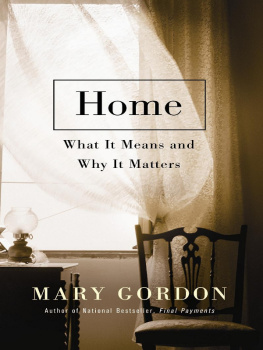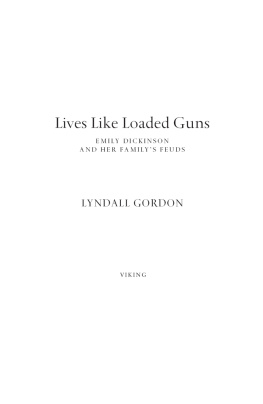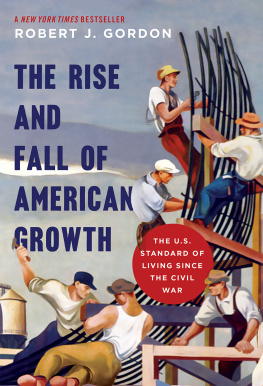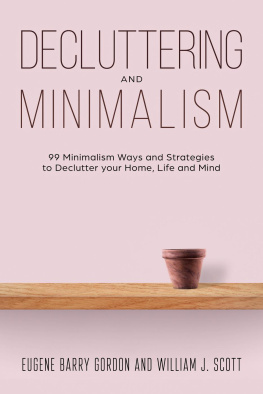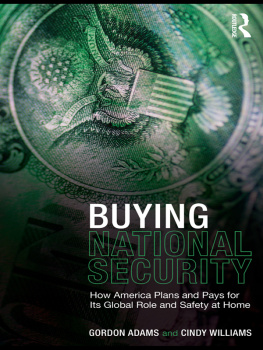
HOME
What It Means and
Why It Matters

Mary Gordon

STERLING and the distinctive Sterling logo are registered
trademarks of Sterling Publishing Co., Inc.
Library of Congress Cataloging-in-Publication Data Available
10 9 8 7 6 5 4 3 2 1
Published by Sterling Publishing Co., Inc.
387 Park Avenue South, New York, N.Y. 10016
Copyright 2010 Mary Gordon
Distributed in Canada by Sterling Publishing
c/o Canadian Manda Group, 165 Dufferin Street
Toronto, Ontario, Canada M6K 3H6
Distributed in the United Kingdom by GMC Distribution Services
Castle Place, 166 High Street, Lewes, East Sussex, England BN7 1XU
Distributed in Australia by Capricorn Link (Australia) Pty. Ltd.
P.O. Box 704, Windsor, NSW 2756, Australia
Manufactured in the United States of America
All rights reserved
Sterling ISBN 978-1-4027-6836-1
For information about custom editions, special sales,
premium and corporate purchases, please contact
Sterling Special Sales Department at 800-805-5489
or specialsales@sterlingpublishing.com.
FOR MEREDITH AND JOSH
CONTENTS

one
What Makes a House a Home?
two
Money, Morals, History, Symbol, Safety
three
What Do We Mean by Home?
Home is a name, a word,
it is a strong one; stronger
than magician ever spoke,
or spirit ever answered to,
in the strongest conjuration.
Charles Dickens

What Makes a
House a Home?
A man to whom I was briefly married said to me one day, toward the end of our time together, You dont deserve to live in a house. For a terrible moment I believed him. He thought he was making a point about my untidiness; I understood it as proof of the impossibility of a shared life. We were both right; because house is a word that sounds simple; its one of the first a child learns; the image is one of the first a child learns to draw. And yet what happens in a house is simply: life. And what could be less simple than that.
Food, clothing, and shelter, the minimum required to sustain a life. Of the three, shelter is the one requiring the greatest investment of resources, and it is the one whose connection to time is strongest and most real. A meal literally decomposes within hours; a dress still fashionable in a decade earns the term classic. But the places where we live: we expect them to outlive us. They are built with an eye to the future... and, of course, the past, both real and fantasized.
We live in houseswhy? Not just to keep us from the elements. Survival is only one part of what we do with where we live. We inhabit spaces so that we can be safe to be who we are, so that we are out of the public eye, so that what we treasure is protected, cared for, showcased. We live at home, whether it is a yurt or a skyscraper. We sleep, entertain friends, rear our children, read, listen to music. We work where we live or we escape from work to go there. Our homes are also about display: how much we are worth, what our taste is. They are the source of our wealth and they drain it. They allow us repose and they demand what sometimes seems to be endless attention. For many women, the house is a metaphor for the body: and all important life is lived within its walls. And what is it to be without one? To be homeless is to be outside the web of the civilized.
Where do you live? This would seem to be a simple question, easily answerable, as the idea of a house would seem simple and almost automatically accessible. But it is, in reality, a complicated question. What is required to provide a proper answer is a thorough consideration of two words in the question: where and live.
In his strange, alternately fascinating and maddening meditation, The Poetics of Space, the late French philosopher Gaston Bachelard asks: Where is the main stress, for instance, in being there, on being, or on there? In that vein, we might ask the question, What do we mean by live? What do we mean by where?
As I write this, I am living in what could be called a house, but it has very little in common with anything a seventeenth-century Dutchman would have called by that name. It is not really a house; it is a part of what is called a housing complex, and it is very different from anywhere I have ever lived. It is not, I think, a good place to be living: I will only live here for some weeks... and so I make of it what I must. But the differences between it and other places I have lived, places I think of as good places to be living, make real to me some of the important questions that surround our habit of habitation.
... home to people like me is not
a place but all places, all places
except the one we happen to
be in at the moment.
Anthony Burgess
My unease here isnt because Im not living in a single-family dwelling. I have been very happy in places that were not houses, but apartments. I have even been quite blissfully happy in hotels. And so I try to pinpoint what is not here, what other happy places have given me.
I will live here for three months, a quarter of a year. It is, in many ways, a sensible thing to be doing; I am quite near the university where I will be teaching and one of a renters problems isnt a problem here: dogs are allowed, and I have two and they are entirely necessary for my mental health. So I am grateful to have a place to lay my head and their paws.
The day after I move in, I am called to the central office, to sign a lease. The lease is twenty-four pages long. Two pages for every week I will live here. Of course I do not read the pages that I sign, or initial, twenty-four times, at the bottom of every page. I swear to pay for whatever I damage; I waive insurance, because I cant imagine that anything here is damageable, or valuable. Nothing here seems precious or irreplaceable: it occurs to me that this may be connected to everything being trouble free.
The representative of the management company assures me that living here will be trouble free. He gives me a key to the gym, the outdoor heated swimming pool, the hot tub. He tells me the rules about garbage. He tells me that hot coffee is available to me in the office, five days a week, eight A.M. to five P.M. He gives me the schedule for the free shuttle that will take me to the campus where I will be working: it will come every half hour. It does not come after eight thirty P.M. or on weekends. He hopes that everything will work for me and suggests (or do I imagine this?) that if it doesnt, it will be my fault.
Today, for the third time, I put my key in the wrong door: I tried to open apartment 156 instead of 256. I was grateful no one was home any of the three times, so I didnt have to confess to my failure of attentiveness. Of course, if I had for some reason opened the door, I would have known instantly I was not at home. Because although the little house-lets are identically constructed, we have placed things inside them that mark them as ours.
I am oddly reluctant to buy things that will mark the place as mineI understand that this is quite unlike me. The last time I lived somewhere for a few months, I brought with me paintings, dishes, linens, vases, rugs. Partly this was a practical matter: my temporary dwelling was only four hours from my permanent home, and I could make several trips, bring things in stages. Whereas this new dwelling is three thousand miles from my home; there is no going back and forth, no time for frivolous mistakes that could be easily amended. But partly my decision is because this place makes me feel hopeless: it is white and square and new; the carpets are oatmeal-colored, and this provides the most vivid tone in the place. I have been provided with what was called a minimum start-up hospitality packet: white towels, white sheets, an oatmeal-colored blanket made largely, I think, of petroleum, a two-tone brown comforter that is usually too warm, except when it isnt warm enough. So why dont I just throw caution to the winds, put the hospitality packet in its box in the closet, spend several hundred dollars on bedding, give it away, if necessary, to some grateful and surprised unfortunates whod have a particularly good day at the Salvation Army?
Next page
